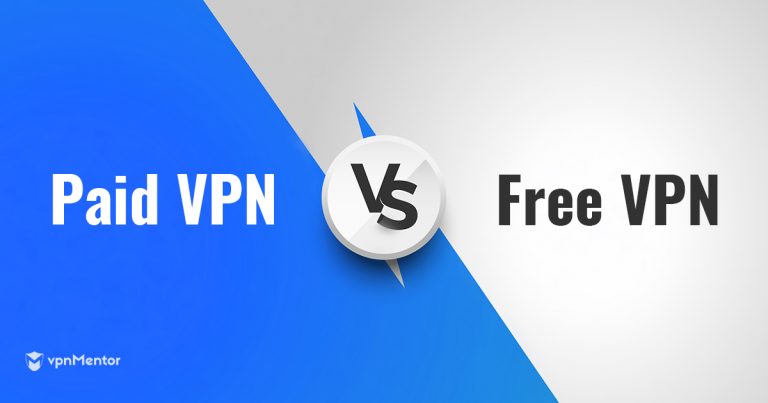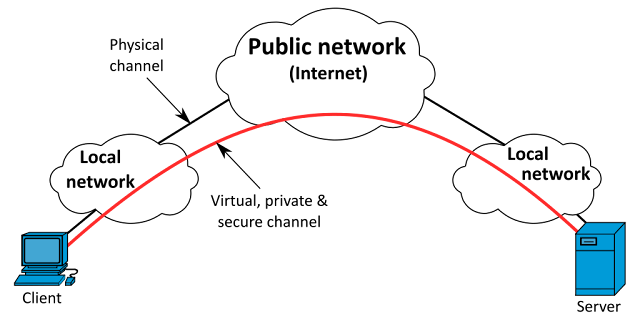
VPN? (Vpn Kya Hai)
A virtual private network (VPN) extends a private network across a public network and enables users to send and receive data across shared or public networks as if their computing devices were directly connected to the private network. Applications running across a VPN may therefore benefit from the functionality, security, and management of the private network. Encryption is common, although not an inherent, part of a VPN connection.
VPN technology was developed to provide access to corporate applications and resources to remote or mobile users, and to branch offices. For security, the private network connection may be established using an encrypted layered tunneling protocol, and users may be required to pass various authentication methods to gain access to the VPN.
In other applications, Internet users may secure their connections with a VPN to circumvent geo-blocking and censorship or to connect to proxy servers to protect personal identity and location to stay anonymous on the Internet. Some websites, however, block access to known VPN technology to prevent the circumvention of their geo-restrictions, and many VPN providers have been developing strategies to get around these blockades.
A VPN is created by establishing a virtual point-to-point connection through the use of dedicated circuits or with tunneling protocols over existing networks. A VPN available from the public Internet can provide some of the benefits of a wide area network (WAN). From a user perspective, the resources available within the private network can be accessed remotely.
A VPN is created by establishing a virtual point-to-point connection through the use of dedicated circuits or with tunneling protocols over existing networks. A VPN available from the public Internet can provide some of the benefits of a wide area network (WAN). From a user perspective, the resources available within the private network can be accessed remotely.
Free vs. Paid VPN: Are Free VPNs Safe?
Free VPN means more traffic, slower speeds, data transfer limits, and connection drops. Paid VPN provides more servers to achieve the best connection speeds for your needs. Free VPN usually has no legal obligations to protect your identity and can be obliged to store logs
One could argue that you shouldn’t have to buy your right to online privacy. While we agree with this in theory, we also need to face reality.
VPN providers offer a service in exchange for something. And when that something isn’t money, it’s usually much worse. There’s no such thing as truly free: chances are, if you’re not paying for a product, you are the product.
Sadly, most free VPNs have serious limitations and pose serious threats to user privacy and security. From slow speeds and bandwidth restrictions to annoying ads and even selling your data, there are plenty of valid reasons to avoid free VPNs.
Take Hola, for example. This free VPN service is essentially a glorified proxy that uses peer-to-peer file sharing to reroute users’ traffic. Not only is your bandwidth shared, but Hola collects and logs almost all the data from your browsing session. Their “privacy policy” even specifies that it will share your data with third parties, affiliates, and partners.
Not all free VPNs are bad. We rigorously tested dozens of free services and found some free VPNs which are safe to use. But is that enough?
When you look at the extra value paid VPNs offer, you probably won’t want a free service. It’s simple – if you want a provider that will guarantee your privacy and give you the servers and features you need, it’s better to pay a few bucks than end up disappointed with a free VPN.
Keep in mind that you can bring down the overall cost of a paid VPN considerably by taking advantage of discount deals and coupon codes. That way, you can get a premium service for pocket change – a win-win situation!
Many top VPN services also offer free trials so you can test out their service for free. Most offer money-back guarantees as well, so you can have a risk-free test period to make sure you’re happy with the service.
frequently asked questions About VPN
- How do I know if I have a VPN installed?
VPNs are normally installed on devices that are capable of connecting to the internet. The best way to check whether you have a VPN installed and is working is to check your IP address on google search. Once your IP is visible, check the location. If it coincides with where you are, then you do not have a VPN on the device or it may be switched off.

